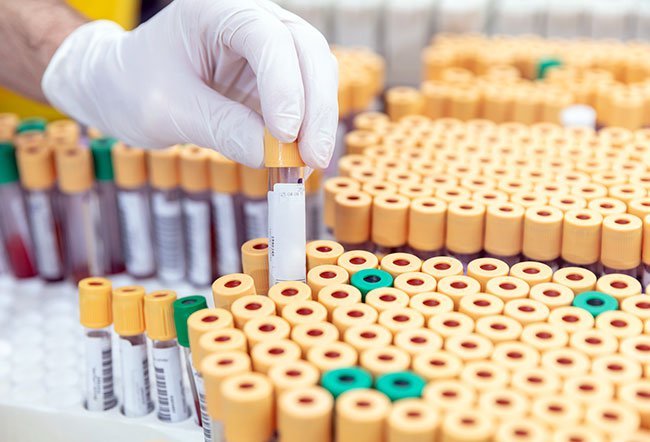Can Cancer Be Detected by a Blood Test?
If your physician suspects cancer during physical examination or while taking a medical history, they might order certain cancer blood tests to guide the diagnosis. These blood tests are called tumor markers. Tumor markers could be specifically raised in certain cancers, and may give some idea about the origin of cancer and whether it is responding to the treatment protocol. These tests, however, are neither specific for certain cancers nor highly sensitive.
Other blood tests could be ordered. While these may not detect cancer or benign tumors, they can give a general idea about the functioning of the organ and indicate whether it has been affected by cancer.
What types of blood tests can help detect cancer?
Tumor marker tests
Tumor markers are chemicals produced by cancer cells and found in the blood. However, tumor markers are also made by normal cells in the body, and levels may increase significantly in noncancerous conditions. Examples of tumor markers include:
- Prostate-specific antigen (PSA) for prostate cancer
- Cancer antigen-125 (CA-125) for ovarian cancer
- Calcitonin for medullary thyroid cancer
- Alpha-fetoprotein (AFP) for liver cancer and testicular cancer
- Human chorionic gonadotropin (hCG) for germ cell tumors, such as testicular cancer and ovarian cancer
- Carcinoembryonic antigen (CEA) for colon cancers
- Human epididymis protein 4 (HE4) and inhibin for ovarian cancer
Circulating tumor cell tests
Recently developed blood tests can detect tumor cells that have separated from an original cancer site and are flowing through the bloodstream. The United States Food and Drug Administration (U.S. FDA) has approved one circulating tumor cell test to monitor people with breast, colorectal or prostate cancer. However, these tests are not commonly used in a clinical setting.
Blood protein testing
Electrophoresis is a test that examines various proteins in the blood. This can help identify various immunoglobulins, which are elevated in people with multiple myeloma. A bone marrow biopsy may help confirm the diagnosis of blood cancer.
Complete blood count (CBC)
A complete blood count helps the doctor to:
- Diagnose some blood cancers, such as leukemia and lymphoma.
- Find out if cancer has invaded the bone marrow.
- Look how a person’s body handles cancer treatment.
- Diagnose other noncancerous conditions.
The results of CBC are interpreted as:
- Low white blood cell count: Cancer treatment tends to lower the body’s white blood cells. Leukemia, lymphoma or multiple myeloma also lower white blood cell count.
- Low red blood cell count: Some chemotherapy or radiation treatment may lower red blood cell count (anemia). Low red blood cell count could also be caused by the cancer bleeding into the stomach, which occurs in stomach cancer.
- Varying amount of white blood cells: Highly abnormal lymphocytes or monocytes can indicate the possibility of certain types of cancer.
- Low platelet count: Cancer that affects the bone marrow can also lower platelet count.
A bone marrow biopsy may help confirm the diagnosis of blood cancer.
Urinalysis
Urinalysis is a lab examination of urine for various cells and chemicals, such as red blood cells, white blood cells, infection or excessive protein. Blood in the urine may indicate a benign condition, but it can also indicate other problems.
Other blood tests include:
- Alkaline phosphatase: It helps to diagnose liver cancer and bone cancer.
- Ferritin: Extremely elevated levels of ferritin may indicate Hodgkin disease or leukemia.
- Thyroglobulin: Elevated levels of this hormone may indicate follicular cancer.


